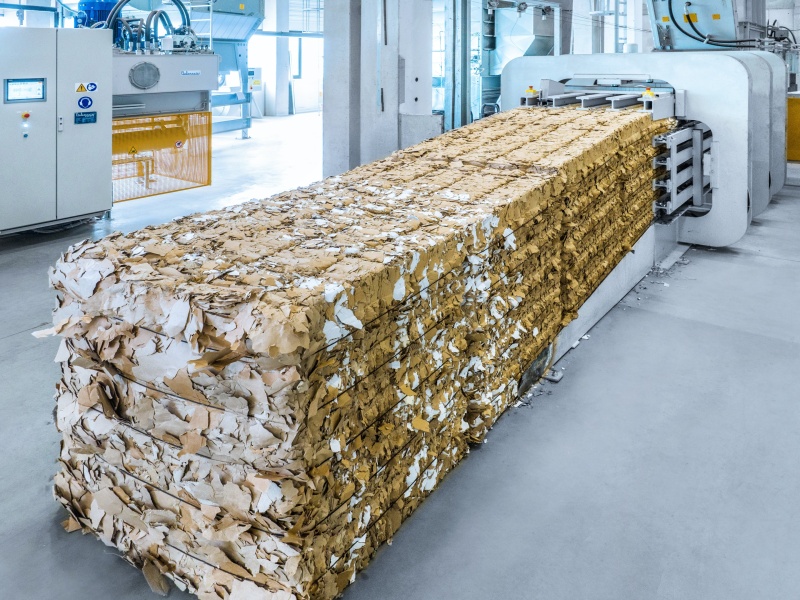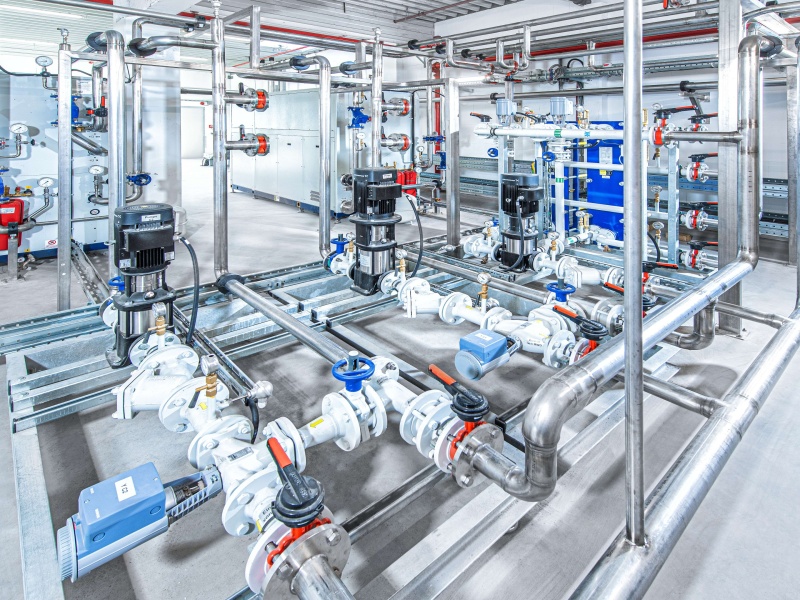Materials:
Efficient Use and Recycling

A responsible approach to our environment and the natural resources of our planet: For us as a family business and in view of the special location of our company in the Dümmer Nature Park, this has been an important concern and an integral part of our corporate philosophy from the very beginning. The economical use of raw, operating, and auxiliary materials is therefore a task that is not only subject to economic constraints but should also help us use materials more efficiently.
The most important raw material for our business activities is paper. Together with our customers, we continuously examine whether the material used in packaging can be further reduced. This can be achieved by changing the design or using lighter paper in some cases. Furthermore, we return the paper waste generated during production to the paper producers so that they can use it to produce new corrugated base paper.
Not only the amount of corrugated base paper we use is critical for sustainability, but also the origin of the paper. We do not purchase any paper made from illegal logging or form of tropical wood. We provide proof of this within the framework of certification in accordance with Forest Stewardship Council Management (FSC-STD-40-004).
Our target by 2024: To reduce waste from corrugated board by minimizing edge trim on the corrugator by 0.1% and by eliminating the production of additional interleaves by 20%.
Energy:
Efficient Use and In-House Generation
Corrugated board as a packaging material has a positive carbon-footprint. As a recyclable packaging material, it promotes the circular economy. And through the high use of recycled material, it contributes to the reduction of climate-damaging environmental impacts. Nevertheless, production is energy-intensive, and despite the steps taken towards efficiency, our energy consumption increases from year to year as the company grows.
To ensure that total energy consumption does not increase at the same rate as our company grows, we see it as our responsibility to continuously reduce energy use across all energy sources and further improve energy efficiency. Approaches to improvement for the near future include coordinated load, shutdown, and leakage management as well as plant and process optimization.
We are also currently examining the possibilities of replacing the fossil-based energies required at the plant with renewable energies. Examples include the generation of process heat from hydrogen, the use of heat pumps for heating, alternative drive systems such as electric or hydrogen drive systems for commercial vehicles, and the generation of electricity from renewable energies. Two photovoltaic systems with a capacity of 650 KWp are currently being planned on the plant site.
An energy management system in accordance with the DIN EN ISO 50001 standard, introduced in 2018 and continuously expanded, will guide us on the path to improved sustainability. It helps us to better record energy flows in the company and evaluate the energy efficiency of machinery, equipment, vehicles, and buildings. The results are fed into an energy team set up for this purpose in 2019, which then derives measures for improvement, such as annual energy awareness training for all employees.
Our goal by 2024: Introduction of in-house power generation using solar power, reduction of the amount of electrical energy used and natural gas used by 1.5% each.
Our Carbon Footprint
In 2021, our company's total CO2 emissions amounted to 7,619 tons, while in the following year, 2022, they fell by 17.55% to 6,282 tons. The reason for the low figures in 2022 is that we used renewable energy for the first time.
Although emissions rose again in 2023 to 9,941 tons, we will once again only use renewable energy sources for electricity and gas this year and next. This brings us closer to our goal of reducing total CO2 emissions.





